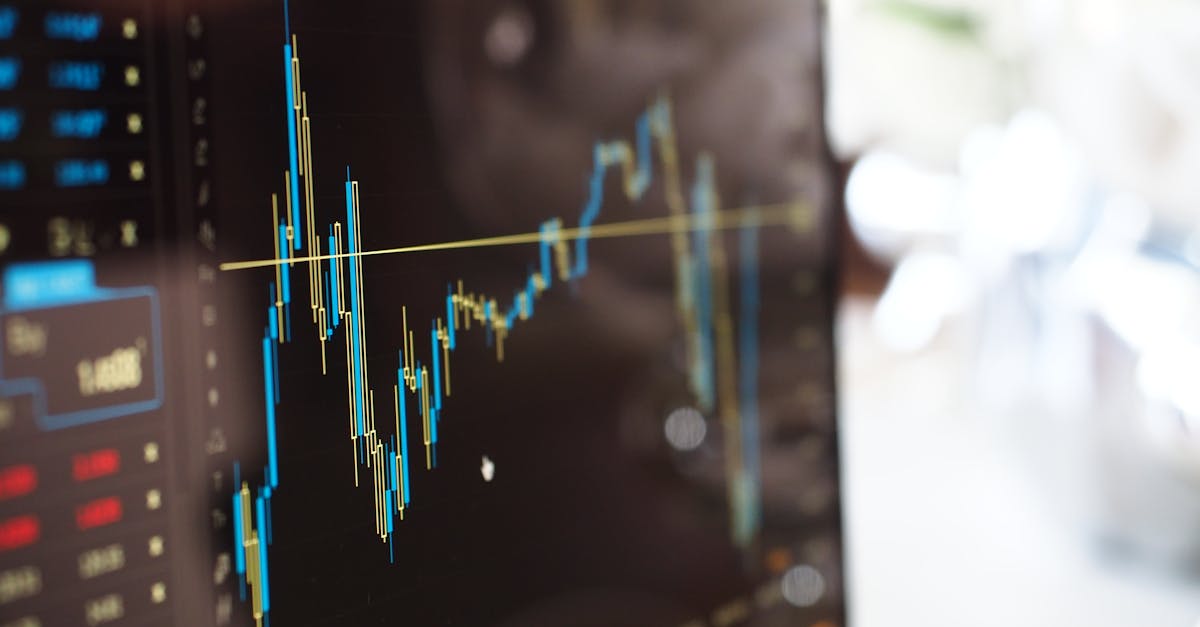
Table Of Contents
Timing the Market
Timing the market in fx trading in a volatile environment can significantly influence profit potential. Traders often analyse historical price patterns and current market trends to identify optimal entry and exit points. This requires a keen understanding of both technical analysis and macroeconomic factors, as external events can cause rapid fluctuations in currency values. Monitoring relevant news and data releases is crucial, as these can set off movements in the market that traders must be ready to capitalise on.
The concept of timing extends beyond immediate trades to encompass broader strategies, including swing trading or long-term investing. Successful fx trading in these contexts demands patience and discipline. Traders must resist the urge to react impulsively to every market movement and instead stick to their planned strategy. Experience plays a key role; over time, traders develop an instinct for when to act and when to wait, making timing an essential skill in their trading arsenal.
The Impact of Economic Indicators
Economic indicators play a crucial role in the world of FX trading in Australia, as they provide insights into national economic health and influence currency value. Key indicators such as GDP growth, unemployment rates, and inflation can significantly affect traders' decisions. A strong economic report can boost a currency's value, while negative data often leads to depreciation. FX traders must stay informed about scheduled releases and understand how these figures can impact market sentiment and trends.
The anticipation surrounding economic data can create volatility in the markets, offering both risks and opportunities for traders. When traders can accurately interpret the implications of these indicators, they can strategically position themselves to profit from currency fluctuations. News events often lead to sudden price movements, making it essential for traders to have both a proactive approach and a keen awareness of the macroeconomic landscape surrounding their trading decisions.
The Importance of a Trading Plan
A well-structured trading plan serves as a blueprint for success in fx trading in a volatile and unpredictable market environment. It provides traders with a clear framework that outlines their goals, risk tolerance, and specific strategies. This systematic approach allows individuals to navigate the complexities of the foreign exchange market with greater confidence. By detailing entry and exit points, traders can avoid making impulsive decisions based on fleeting market sentiments.
Incorporating analytical tools and performance metrics into a trading plan enhances its effectiveness. Traders are encouraged to regularly review their strategies and results, making necessary adjustments to stay in alignment with market conditions. This ongoing evaluation not only fosters discipline but also builds resilience in the face of inevitable losses. With a solid trading plan, fx trading in the dynamic financial landscape becomes significantly more manageable.
Elements of an Effective Trading Plan
A well-structured trading plan is crucial for anyone engaging in fx trading in today’s volatile market environment. This plan should clearly outline the trader's goals, risk tolerance, and preferred trading strategies. By defining these elements, traders establish a framework that guides their decision-making, helping them remain focused amidst the noise of shifting currency values. A solid plan also accommodates both short-term and long-term objectives, ensuring that traders can adapt to changing market conditions without straying from their primary aims.
Furthermore, incorporating risk management techniques into the trading plan is essential for minimizing losses. This can involve setting stop-loss orders, diversifying positions, and determining an acceptable level of risk for each trade. Traders also need to factor in their available capital and leverage, as these aspects significantly influence potential returns and overall portfolio health. By integrating these essential elements, traders enhance their likelihood of success in fx trading in a competitive landscape, where discipline and strategy often make the difference.
Psychological Factors in Trading
Psychological factors play a significant role in the success of FX traders. Decisions made during trading can often be influenced by emotions such as fear, greed, or overconfidence. An impulsive reaction to market fluctuations can lead to poor trading choices, impacting profitability. Traders must recognise the pervasive nature of these emotions and develop a strategy to manage them effectively. A calm and composed mindset allows for more objective decision-making, which is crucial in the fast-paced environment of fx trading in today’s markets.
Furthermore, self-discipline stands as a cornerstone of successful trading. Adhering to a well-defined trading plan helps mitigate the impact of emotional responses. Traders who maintain strict adherence to their strategies often find they can avoid common pitfalls like revenge trading or excessively risky options. In fx trading in a volatile market, possessing a disciplined approach can mark the difference between sustainable profitability and significant losses. Balancing emotion with strategy ultimately leads to better outcomes in the competitive landscape.
Overcoming Emotional Decision-Making
Overcoming emotional decision-making is crucial for success in FX trading in a highly volatile market. Traders often face pressure that can cloud their judgement, leading to impulsive choices rather than calculated ones. Developing awareness of personal triggers is essential. By recognising moments when emotions surge, traders can implement strategies to remain focused on their analysis and planned approach.
Establishing a set routine can also help mitigate emotional responses during trading sessions. Including regular breaks and reflecting on past trades encourages a more objective viewpoint. Incorporating tools such as trading journals allows traders to track their emotional states alongside their decisions. This practice fosters discipline and helps in evaluating the effectiveness of strategies without the influence of fleeting feelings in the fast-paced world of FX trading in Australia.
FAQS
What is the best time to trade Forex for maximum profit?
The best time to trade Forex is typically when the major markets are open, such as during the overlap of the London and New York sessions. This period sees higher volatility and trading volume, which can lead to more opportunities for profit.
How do economic indicators affect Forex trading?
Economic indicators provide insight into the health of a country's economy and can influence currency values. Traders often analyse these indicators, such as employment rates, inflation, and GDP, to make informed decisions about when to buy or sell currencies.
Why is having a trading plan important for FX traders?
A trading plan helps FX traders to set clear goals, outline strategies, and define risk management techniques. Having a structured approach allows traders to make more disciplined decisions and reduces the likelihood of emotional trading.
What are the key elements of an effective trading plan?
An effective trading plan should include a clear trading strategy, risk management rules, entry and exit criteria, and performance evaluation metrics. It should also account for individual trading psychology and market conditions.
How can traders overcome emotional decision-making in Forex trading?
Traders can overcome emotional decision-making by sticking to their trading plan, practising mindfulness, and keeping a trading journal to reflect on their decisions. Additionally, setting realistic goals and managing risk can help maintain a logical approach to trading.




